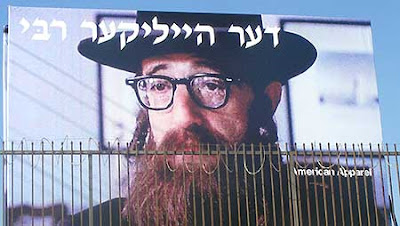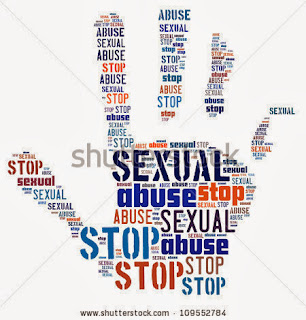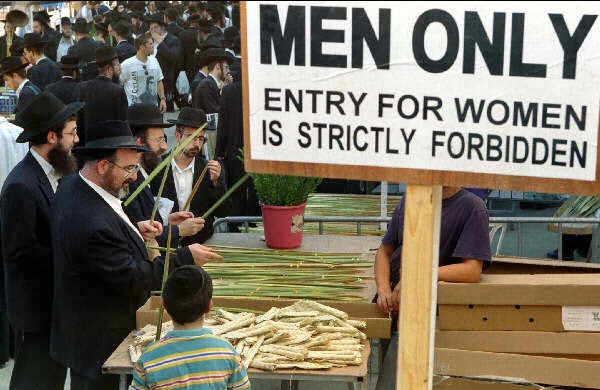My Wig Was Beautiful and Expensive, and Everybody Loved It—Except Me
When I got married, my sheitel was a symbol of my vows and my Orthodoxy. Then it became a symbol of my discontent.

I had just had a big fight with my new husband, and in a huff I stormed out of our apartment to the bewilderingly quiet street in the Westchester hamlet where we were living. I was halfway up the block before I realized that I had forgotten to put something on my head, and I paused as I debated whether I should go back for a hat. But I thought better of it: Lightning had not struck; I had not burst into flames for my transgression. In the grand scheme of things—my growing uncertainty about my religious observance, my misery in my isolation in Westchester County—making sure my hair was covered had suddenly become a concern that barely registered for me. I kept walking.
It was after that incident that I had to admit, after months of discomfort and growing antipathy to religiosity, that I truly didn’t believe it was an external accessory like a wig, or skirts instead of pants, that made someone a good Jew. Being a good person made someone a good Jew. Finding meaningful ways to live in the spirit of the central virtues of Judaism made someone a good Jew, and I genuinely believed that there are many different ways to put those virtues, of which modesty is one, into practice. Wearing a wig might work for another woman to embody that value, but, I finally realized, it wasn’t working for me.
***
I started covering my hair when I got married five years years ago, at age 22. Despite growing up Orthodox in Flatbush, Brooklyn, and spending eight years at a strict, Bais Yaakov-like yeshiva, I was resistant to the idea of donning a wig or other head covering after my wedding, as my mother had done with enthusiasm decades earlier. I felt restricted enough by Orthodox rules already without adding to the dogma. But covering my hair seemed really important to other people, including my parents—and my fiancé, a ba’al teshuva. Rather than risk disappointing them over what ultimately seemed like a superficial issue, I chose to just go along with it. It was easier not to think of any deeper meaning behind my doubts.
In a dank, Flatbush basement operation run by a busy and irreverently funny sheitel macher—think the snarky best friend from every romantic comedy of the last decade—I tried on wigs of varying shades and lengths, my mother in the corner beaming with pride and just itching to open her wallet. The final product was a custom-made, $1,200 masterpiece of long silky layers dyed a deep, rich chocolate color. As I stared at myself in the mirror, enamored by my sudden sophistication, I thought, “This isn’t so bad. I could totally do this.” It was an undeniably sexy wig, and it cried out for a sexy moniker.
I called her Esmeralda.
But no matter how expensive and beautiful Esmeralda was, I quickly found her wanting. Wearing a wig for longer than 10 minutes was uncomfortable. I constantly felt like it was incorrectly tethered to my scalp, which unnerved me and had me anxiously adjusting the combs every five minutes for fear that she had surreptitiously slipped halfway off my head. Esmeralda and I simply didn’t take to each other, and a few weeks later, I switched to fabric mitpachot and bandanas, only bringing her out for Shabbos and special occasions.
I soon grew to despise those other head coverings as well. I had always liked my own thick, straight hair that inspired envy in friends with frizzier mops, who’d run for cover at the first sign of rain or humidity while I moseyed along, knowing my own hair would stay unaffected. Now I resented covering it up each day. The bandanas made me feel frumpy, and it was annoying having to find something that vaguely matched my outfit each day.
I know, I know: first-world problems. But being miffed by the mundane often cloaks an antagonism that is more deep-rooted and is frequently the stuff on which our lives turn in both trivial and more significant ways. And as I continued wearily rifling through my growing collection of hair coverings each day, I grew to begrudge what I had been taught about the deeper reasoning behind the rule. Talmudically, hair is defined as ervah, or “sexually erotic,” but this seems almost laughably out-of-date and removed from modern norms, where pop stars regularly writhe around on stage in their underwear. I sincerely doubted that my hair, lovely as it is, would drive any man wild to the point of intoxication. Also, I had learned, wearing a wig would modestly communicate to other men that I was not available. This had chafed my feminist tendencies when I learned about it (why was it my job to advertise anything to these men?) but much more so when I was actually practicing it. Besides, couldn’t my married state be easily inferred from my wedding ring?
There were other reasons for my discontent. I had grown jaded watching the hordes of women in Flatbush in skin-tight skirts and $500 stilettos who told me they were capturing the essence of modesty as God prescribed it, because they also wore sheitels. I was weary of the Jews obsessed with one-upping their neighbors with chumras (prohibitions) like forbidding “treif” stuffed animals in their home or shunning sushi for its popularity in secular culture. Are those Jews really trying to live a meaningful Jewish life, I wondered, or are they just caught in a byzantine web of misguided chumras and loopholes that distort the original intent and meaning behind the laws?
I had looked forward to living in a largely non-Jewish town in Westchester, away from prying eyes and the keeping-up-with-the-Goldbergs rat race that existed in Brooklyn. I discovered, though, that despite the relaxed atmosphere at the small Chabad that I attended—it was the only Orthodox shul nearby, although ironically, it served mostly unaffiliated and non-observant Jews—my discomfort remained. I was one of only three observant women and the only one “frum from birth” aside from the rabbi’s wife, and this instantly made me a spectacle. Though they had no malicious intent, people stared at me when I wore the wig—so much for modesty—and when I prayed, standing and bowing by rote at the appropriate points in prayer. “Look,” they whispered, nudging their friends, “she really knows what she’s doing.”
Esmeralda served to make me a paragon of Orthodoxy to these less-observant people, and it was a status I had neither expected nor asked for. If my skirt rested even slightly above my knees, they would adopt mock outrage as they tsk-tsked and waved a finger at me. I was repeatedly approached to ask if I knew where to buy kosher food, or how to affix a mezuzah, or if their son-in-law’s Reform conversion meant he wasn’t really Jewish, after all. What I thought was my escape from preconceived expectations and whispering yentas turned out to be life under a different microscope, and it was just as suffocating....









.jpg)

























